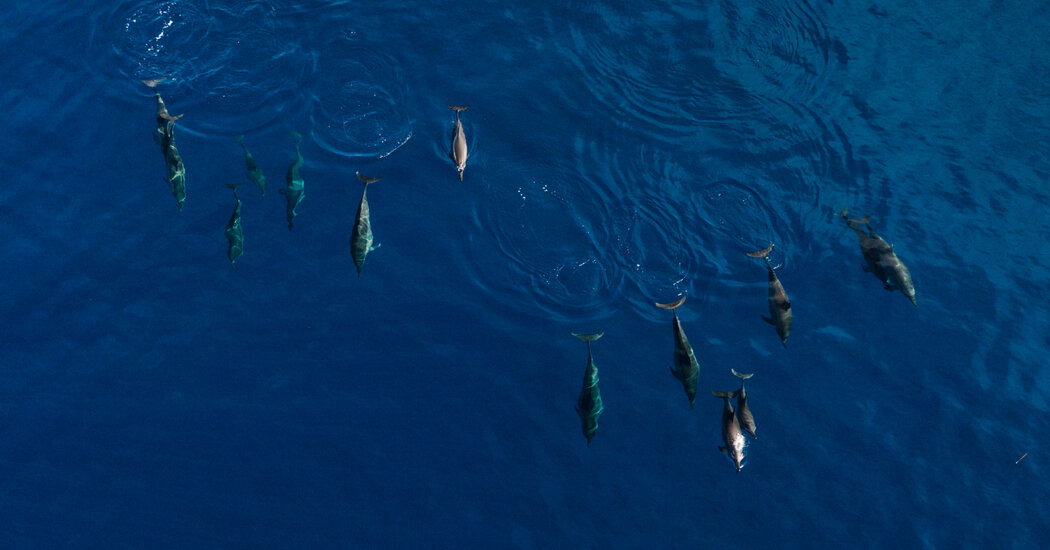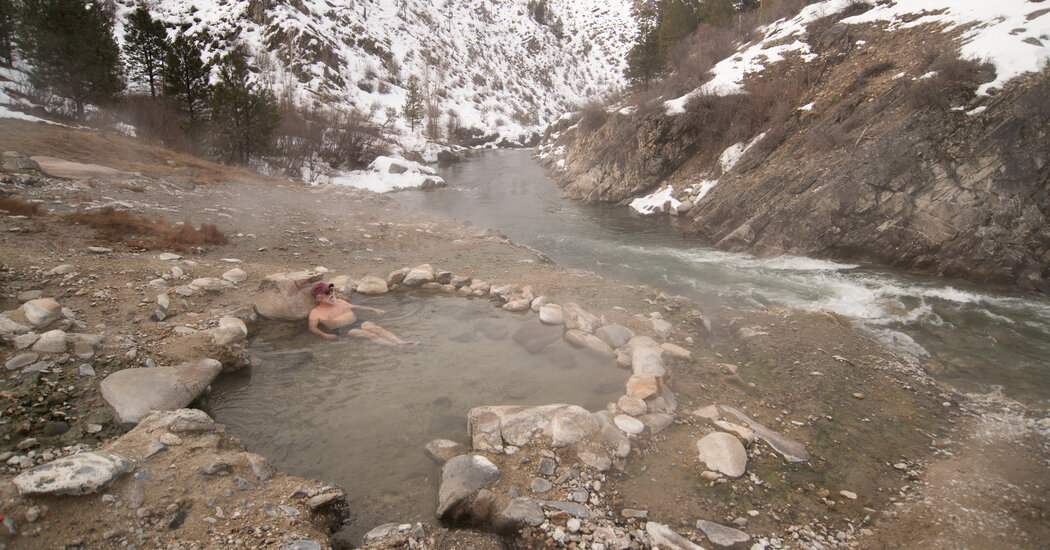Dolphin Hunting: A Fight for Survival in Fanalei
The residents of Fanalei Island, in the Solomon Islands, say the lucrative hunts will help them buy land elsewhere and move off their sinking home. A pod of dolphins off the coast of South Malaita in the Solomon Islands. The call of a conch shell roused the dolphin hunters from their beds. Under moonlight, the six men shuffled to the village church. There a priest led them in a whispered prayer, his voice barely audible over the sound of crashing waves; the tide was high that day. Saltwater pooled in parts of the village, which is on Fanalei Island, an ever-shrinking speck of land that is part of the Solomon Islands in the South Pacific. They paddled out in wooden canoes before first light, cutting through the darkness until they were miles away from shore. After hours of scanning the horizon, one of the hunters, Lesley Fugui, saw a fin slice the glassy water. He raised a 10-foot-long bamboo pole with a piece of cloth tied to the end, alerting the others of his discovery. Then he made a phone call to his wife. He had found dolphins. The hunt would begin.
The introduction describes the plight of the Fanalei Island residents in the Solomon Islands, who rely on hunting dolphins to secure their future. The island is sinking due to climate change, and the residents seek to buy land elsewhere for relocation. The narrative begins with a group of hunters preparing for a dolphin hunt, which is not only an economic necessity but a cultural practice. The rising sea levels and encroaching saltwater threaten their subsistence and survival, making the dolphin hunts an urgent activity to ensure their continued existence and potential resettlement.
Dolphin Hunting for Survival on Fanalei Island
Despite the challenges, the community of Fanalei remains united in their efforts to preserve their way of life while adapting to the changing environment. The shared goal of relocating to higher ground brings the residents together as they rely on the traditional dolphin hunts for financial support. The communal decision-making process ensures that resources are allocated fairly among the villagers, reflecting their deep sense of mutual responsibility. Although options such as seaweed farming have been proposed, the reliance on dolphin teeth as currency and cultural exchange holds strong due to its immediate economic benefits. As they grapple with the uncertainties of nature, the people of Fanalei continue to seek ways to secure a future for their descendants amidst the pressing threat of climate change.
Impact of Climate Change on Fanalei Island
During the hunting season, which runs from January through April, people here can kill up to a thousand dolphins, but the hunters say that the weather is becoming increasingly unpredictable, making it harder for them to locate and trap a pod. While dolphin meat is eaten and bartered with neighboring islands for food, betel nuts and other products, the teeth are the true prize of the hunt. They are used for cultural activities, and families of prospective grooms buy them by the hundreds to give to a woman during a traditional bride price ceremony. In recent years, most villagers have fled to a neighboring island. They continue to hunt dolphins from there, saying they need to buy more land to house those left behind and support their growing population.
Challenges Faced by Dolphin Hunters in Changing Weather Conditions
With each dolphin hunting season, the physical and economic challenges become more pronounced for the community on Fanalei Island. As the ocean continually reclaims the land, communities increasingly rely on the proceeds from the hunts, intertwining the tradition deeply within their survival strategy. Despite the criticisms from conservationists, the islanders maintain that without a viable alternative, dolphin hunting remains one of the few avenues left to secure a future away from their inundated homes. These practices, though time-honored, bring forth a mix of cultural pride and existential urgency, all while each gathering of dolphin teeth represents not just currency, but a step toward potential relocation and safety.
The Future of Fanalei Island Residents
For the people of Fanalei, dolphin hunting is more than just a cultural practice; it is a lifeline in the face of climate change threats. As their island home continues to sink and resources diminish, these hunts represent a means to secure their future and a chance to relocate to safer grounds. While the ethical implications of their actions pose significant questions, the community’s immediate concern remains their survival. As they navigate this uncertain future, the residents of Fanalei weigh the value of tradition against the urgent need to adapt and ensure the safety of their families.















Post Comment